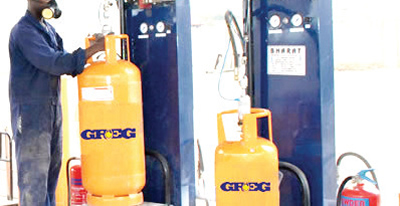The Federal Ministry of Petroleum Resources, alongside the Nigerian Midstream and Downstream Petroleum Regulatory Authority (NMDPRA), recently reaffirmed its commitment to promoting the use of Liquefied Petroleum Gas (LPG) among the Nigerian populace. This pledge was made during the Nigerian Association of Liquefied Petroleum Gas Marketers’ 2024 National Conference held in Lagos, which was themed ‘Sustainable Energy Growth in Nigeria’. At the conference, key stakeholders from government, regulatory bodies, and industry representatives engaged in discussions aimed at formulating effective strategies for enhancing the adoption of LPG throughout the country.
In his keynote address, the Minister of State for Petroleum Resources (Gas), Ekeperikpe Ekpo, articulated the government’s ambition to significantly increase LPG consumption in Nigeria, targeting five million metric tonnes per annum by 2030. Represented by Abel Nsa, Ekpo emphasized the essential need for infrastructure expansion and the creation of favorable market conditions to attract investments within the LPG value chain. His remarks underscored the multiple benefits associated with increased LPG adoption, particularly in enhancing public health and environmental sustainability by reducing reliance on traditional biomass for cooking, which is known to degrade indoor air quality.
The Minister further highlighted the Federal Government’s ongoing initiatives to transition Nigerian households to cleaner cooking solutions through an LPG Cylinder Distribution Programme, which aims to transition 250,000 homes over the next decade. Ekpo asserted the role of LPG in fostering energy security, stating that a heightened domestic consumption of LPG would alleviate pressures on existing energy resources and mitigate fluctuations influenced by international energy markets. His address reinforced the government’s ongoing commitment to ensuring that LPG becomes a significant and reliable energy source for Nigerians.
Ogbugo Ukoha, the Executive Director of Distribution Systems, Storage, and Retailing Infrastructure at NMDPRA, acknowledged the progress made in the LPG sector but noted that the optimal utilization of LPG is hindered by several constraints. He identified the need for expanded gas processing capacities, increased local cylinder production, and heightened compliance with safety regulations as paramount issues that need to be addressed. Ukoha also discussed the Midstream and Downstream Gas Infrastructure Fund, which supports investments in LPG infrastructure, revealing that substantial funds had been allocated to boost gas infrastructure projects aimed at improving LPG accessibility. He emphasized the necessity for collaboration among industry stakeholders to ensure affordability, sustainability, and accessibility of LPG.
Abideen Olatunbosun, the National President of the Nigerian Association of Liquefied Petroleum Gas Marketers (NALPGAM), also echoed the sentiments of the other speakers about the vital role LPG plays in Nigeria’s energy landscape. He called for increased collaboration and investment in infrastructure and technology to tackle the pressing issues faced by the sector, referencing the transformative changes occurring in the oil and gas industry as shaped by the Petroleum Industry Act and the influx of more indigenous investors. Olatunbosun’s perspective reflected a hopeful outlook for the future of LPG in Nigeria and emphasized the collective responsibility of stakeholders in enhancing energy sustainability in the country.
The discussions at the conference highlighted a shared recognition of the potential of LPG to contribute positively to Nigeria’s energy growth and sustainability goals. Stakeholders across the board underscored the importance of coordinated efforts in addressing challenges within the LPG sector and expanding its reach across the country. By prioritizing investments in necessary infrastructure and promoting technological advancements, there exists a significant opportunity for Nigeria to enhance its energy landscape through increased LPG adoption. Hence, the commitment by both the maritime ministry and regulatory authorities indicates a clear path towards achieving a more sustainable and viable energy future. As industry players rally around these initiatives, the expectation is a profound shift in Nigeria’s energy utilization patterns, ensuring cleaner and more efficient cooking solutions for its citizens.














